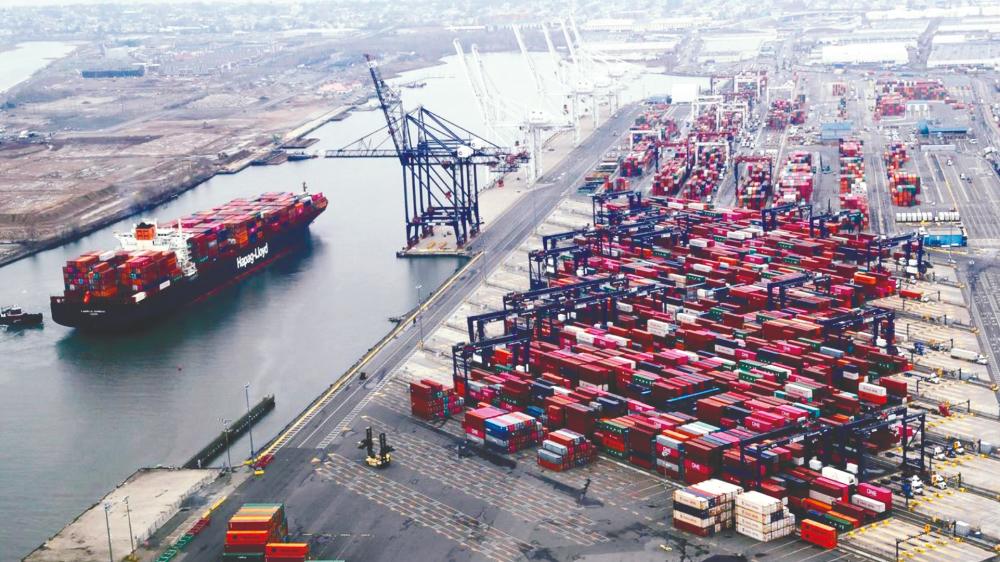PETALING JAYA: AmBank Research says the Covid-19 pandemic has resulted in political, economic, social and cultural shifts that changed the global landscape, which appears to be accelerating the deglobalisation process and already hurting global investment and trade.
Expectations are that global foreign direct investment (FDI) flows may fall by 40% in 2020-21. Cross-border mergers and acquisitions will continue to decline.
Its chief economist Anthony Dass said how severe the impact on global investment and trade flow is depends on the degree to which restrictive measures become binding and supply chains being relocated to home markets, as the placing of restrictions and screening on investment and trade are not new but the scope of their expansion is.
He said that prior to the pandemic, screening was justified on the fear of becoming dependent on a foreign company for the delivery of critical goods and services, a desire to ensure that domestic technology and expertise remain within national borders and the prevention of surveillance or sabotage of essential services. Today, the pandemic has added a new dimension to these insecurities that will have global ramifications on investment and trade flows.
“Moving forward, there is a need to change and adapt to the new business ecosystem. Fundamentals in global supply value chains have changed in reaction to global supply disruptions. Industries are reorienting and diversifying their lines of production, expanding the scope of their cooperation across borders to better adapt to the changing global supply and demand shock,” he said in a report yesterday.
Dass noted that as industries are reorienting and diversifying, they are also expanding the scope of their cooperation across borders to better adapt to the changing global supply and demand shock.
“The situation due to Covid-19 is becoming more challenging as more countries are now looking inward. Understandably, it is to sustain the growth of their own export market.”
Given these impending issues, Dass said, government policy needs to focus on supporting local businesses to enable them to restrategise, revamp and remodel based on the global shift in consumer markets, investment and trade.
“There is a need to start working on investments and trade in new areas of future growth while strengthening their market presence to stay relevant. After decades of focusing on the electrical and electronics (E&E) sector, emphasis should be on growing new areas like health, medical device manufacturing, digital technology and halal food industries,” he said.
Innovation in the energy sector is not limited to developments in technology, but also encompasses innovation in contracts, business models, decision making and the diversification of portfolios.
In addition, the government will need to reconsider the list of strategic goods for which there is a requirement for domestic production, or impose new sourcing constraints on businesses, as well as considering special arrangements for specific supply chains for strategic goods.
Creating successful environment, social and governance (ESG) policies and strategies is essential, said Dass, as ESG investing will be big in the post-Covid-19 era.
He highlighted that the pandemic has been a wake-up call for all businesses as it has been revealed that global markets and supply chains are fragile and easily disrupted, which will result in an increased focus on sustainability.
ESG integration helps to both reduce risks and capture business opportunities linked to the transition to a more sustainable economy. A possible silver lining of this devastating crisis would be an accelerated transition to a more circular, resilient, inclusive and sustainable economy, he noted.
“Also, there is a need to emphasise on market presence and reputation. Goods and services offered by companies need to stand out. Having a strong market reputation would help businesses gain the edge over the competition and ensure growth as well as sustainability.
“Policies need to be designed to help businesses develop market presence and reputation to help to determine their growth as well as secure a niche space in the market. It is important to take note that businesses in future will not be what they used to be.”
The Covid-19 pandemic has resulted in shifts that changed the global landscape, which appears to be accelerating deglobalisation and already hurting investment and trade. – REUTERSPIX















